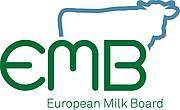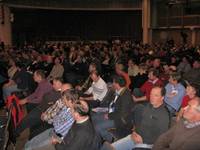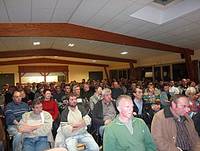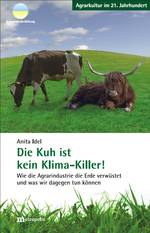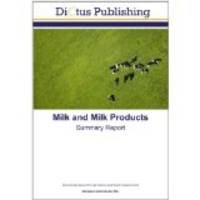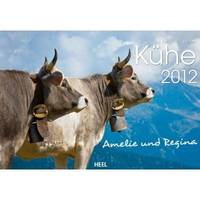Newsletter December 2011
Newsletter as PDF
Contact
European Milk Board
Bahnhofstr. 31
D-59065 Hamm
Phone: 0049/2381/4360495
Fax: 0049/2381/4361153
Mail: office@europeanmilkboard.org
Web: http://www.europeanmilkboard.org
Newsletter as PDF
Contact
EMB - European Milk Board asbl
Rue de la Loi 155
B-1040 Bruxelles
Phone: +32 - 2808 - 1935
Fax: +32 - 2808 - 8265
Dear Dairy Farmers and Interested Parties,
Over the last few weeks and months every member organisation and the Executive Committee of the European Milk Board (EMB) have held many talks with Members of the European Parliament, explaining to them the reality on the farms and the EMB’s positions. It is sad to discover that most of them live and think in a totally different world, very remote from the farming reality. Yet practically every MEP is quite receptive and grateful to come into contact not only with farmers from his/her own country but also from other European countries.
I myself used to think this form of contact with the MEPs was a waste of time until a few months ago. But I, who have always severely criticised lobbyists, have realised that not having these discussions means leaving it open to COPA, the industrial groups and in particular the dairies. We have to tell the politicians that these organisations do not represent the farmers’ interests; they are far more interested in making us farmers permanently dependent on them.
In the last few weeks the Executive Committee of the EMB has also had talks with the Ministers of Agriculture of the Czech Republic, Luxembourg, Belgium, Germany and Poland. We made it clear that in future we need cost-covering prices, and the indispensable precondition for this is regulating the dairy market (in line with the EMB concept). I was particularly shocked by the weak position of the German Minister of Agriculture Aigner. She seems convinced that the German farmers stand in extremely good stead throughout Europe. And I gained the impression that it is not her but her secretaries of state that determine the German agricultural policy.
Altogether I found out that many ministers support many of our positions but are not prepared to adopt them in public. To me this seems symptomatic of all European policy-makers. I realised that this is why we have to conduct campaigns (even only symbolic ones) time and again and thus increase the pressure on politicians. When someone like Lars Hoelgaard publicly announces at the IG-Milch Members’ Meeting in Austria that the majority of Danish milk producers is bankrupt, this is also a clear sign that the policies of Fischer-Boel, Rasmussen and Hoelgaard have failed.
The Executive Committee of the EMB will carry on the struggle on behalf of the farmers and I am sure that we can continue to rely on your support. One thing ought to be clear to everyone: no matter what decisions are taken within the next few months regarding the Milk Package and the market order of the new CAP in Brussels, it will not be until 2015 that we will see what direction the EU dairy policy and with it milk production in Europe are going in. We will carry on our struggle continually and consistently, and whenever necessary will also turn out en masse to demonstrate in Brussels.
I wish you all a merry December.
Yours sincerely,
Erwin Schöpges, Member of the EMB Executive Committe
Successful campaigns: “Prevent butter mountains instead of dumping them”
On 29 November 2011, more than 60 farmers turned up at the German-Swiss border in Basel to show that farmers on both sides of the border are against the dumping of butter abroad. What triggered the demonstration off was the dumping of reduced-fat butter products from Switzerland on Germany and France.
The Swiss producers are paying twice for this: with low prices for their milk and extra compulsory levies to subsidise exports. These extra volumes can result in distortions in markets already overburdened in the EU countries and worldwide, thus increasing the pressure on farm-gate prices. The major cause of these imbalances in Switzerland and in the EU is overproduction, i.e. the lack of any effective producer-controlled management of the milk supply volume.
Milk producers’ interests put on the back burner in the new Milk Package
The European Commission, Parliament and Council of Ministers’ agreement on the Milk Package totally ignores the milk producers’ situation
“The European milk producers are deeply disappointed”, is the comment made by Romuald Schaber, President of the European Milk Board (EMB), on the current upshot of negotiations between the Commission, Parliament and Council of Ministers on the reform of the dairy market. The resolutions they have taken have missed the target of strengthening the producers’ position by a long shot.
The European Parliament will vote on the extant Milk Package in mid-February.
600 milk producers at the Annual Meeting of IG-Milch
On Saturday, 19 November 2011, President Erna Feldhofer presented her report on last year’s activity after being in charge of the organisation for one year. Besides the reports on the numerous demonstrations and protest campaigns in Germany, Belgium, Austria and Switzerland, the 600 participants were also informed of “Freie Milch Austria”.
Lars Hoelgaard, who enjoys being provocative, reiterated that in future the price must be regulated by the producer co-operatives and the quota will be phased out.
In his speech, Graefe zu Baringdorf galvanised the farmers, who had come from all over Austria to this event in Leonding, warning them that each and every one of them had to take their fate in their own hands. He made the point that the farm-gate price could only be secured by controlling volumes.
“It is up to us to carry on the struggle in order to finally succeed...”
900 milk producers came to Avranches in France today to attend the meeting of the Office du Lait – an inter-branch organisation set up by the French milk producers. The Office du Lait’s aim is to create a platform on which all the market players co-operate on the basis of cost-covering prices. At the moment the producers and the consumers are the driving force.
Paul de Montvalon, President of the Office du Lait, emphasized the importance of a a close cooperation of the Office du Lait with the France Milk Board and the organisations that represent the milk producers’ position in dealings with the politicians – such as in the APLI (Association Nationale des Producteurs de Lait Indépendants) and OPL (Organisation des Producteurs de Lait)
Alice Endres (German Milk Board) became very serious on the subject of the lack of support from the dairy co-operatives for the producers: “Milk must be pooled and negotiated before the dairy to force the processors to pay a fair price.”
Supply management in the US American dairy market
New draft Act does not meet this requirement to the benefit of many producers
Since 2007 individual farmers’ organisations in the USA have repeatedly proposed that volumes in the milk market be subject to a public supply management system. In view of the considerable price fluctuations in the American dairy market and the resultant income problems for the milk producers, producer co-operatives and traditional farmers’ unions are now calling for supply management as well. Randy Mooney, a milk producer from Missouri and President of the marketing co-operative Dairy Farmers of America: “We can carry on growing and supplying the world with our milk for as long as the US dairy industry wants us to, but we need a system that adjusts supply to demand and enables the producers to still make a profit.”
Book tip: “The Cow is no Climate Killer”
Cows belch methane, and methane is 25 times more damaging to the climate than CO2. Yet cattle are indispensable for world food supplies, as they help preserve soil fertility and limit climate change: in sustainable grazing, ruminants have the potential to store carbon as humus in the soil.
This book poses the question of the system and offers far more than rehabilitating the cow: it substantiates the multi-functionality of the soil-plant-animal eco-system in sustainable agriculture, states the scientific facts and provides a platform for people who with 21st century knowledge are banking again on the symbiotic potential of pastoral farming with cow and co.
Statistics tip: “Milk and Milk Products in the European Union”
The dairy sector is extremely important to the European Union (EU) for a number of reasons. What is most striking is that without exception every EU Member State produces milk. In many regions of the EU that are frequently of special agricultural worth or worth for the environment (such as mountain regions), the dairy industry is the most important sector. Dairy farming has shaped these landscapes. The dairies therefore have an importance that goes way beyond the statistics. It is dairy farming that imbues many rural areas with their special character, and a flourishing dairy sector is important for the economy and employment.
Book tip: Time for Outrage!
“93 years. The end is not far off now. What an opportunity to take advantage of it to recall the springboard for my political commitment: the programme drawn up sixty-six years ago by the Conseil National de la Résistance!” What a great opportunity to benefit from the experience of this great Resistance fighter, a survivor of the Buchenwald and Dora camps, co-author of the Universal Declaration of Human Rights of 1948, appointed French Ambassador and made a Commandeur de la Légion d’honneur! Of course, the reasons for feeling outrage in today’s complex world may seem less clear than in the Nazi era. But “seek and you will find”
“Cows 2012” calendar with Amélie, Regina and many others
The eponymous cows and their colleagues on the twelve pages, one for each month, all have names, lending the vivid photos their own witty character. The calendar is also available in “Geese and Ducks”, “Sheep”, “Donkeys” and “Classic Tractors” editions.
Poem: Butter mountain in the sea of fog
Where butter mountains pile up
People can’t be hungry, can they?
That’s what you think, isn’t it?
Hunger’s just gnawing somewhere else
When butter mountains pile up
They could be shifted and,
How splendid, we could kill
Two birds with one stone
We would only have to cart all
The rubbish duty-free over the borders
That’s what they’ve been doing for ages
In the boundless border traffic (...)
EMB Calendar
Find here some oft the most important meetings oft he EMB Executive Board:
Dec. 15th 2011: Meeting with hungarian minister of agriculture in Budapeszt
Dec 12th 2011: Meeting with bulgarian minister of agriculture in Sofia
Dec 06th 2011: Advisory Group on Milk in Brussels
Full Texts
Successful campaigns: “Prevent butter mountains instead of dumping them”
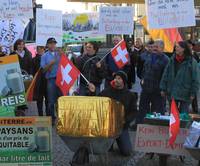
On 29 November 2011, more than 60 farmers turned up at the German-Swiss border in Basel to show that farmers on both sides of the border are against the dumping of butter abroad. What triggered the demonstration off was the dumping of reduced-fat butter products from Switzerland on Germany and France.
The Swiss producers are paying twice for this: with low prices for their milk and extra compulsory levies to subsidise exports. These extra volumes can result in distortions in markets already overburdened in the EU countries and worldwide, thus increasing the pressure on farm-gate prices. The major cause of these imbalances in Switzerland and in the EU is overproduction, i.e. the lack of any effective producer-controlled management of the milk supply volume.
Samuel Spahn from Uniterre, an EMB member that started the campaign from the Swiss side: “The trade in cheap butter is damaging producers on both sides of the border, that is why we have to act together. This symbolic campaign drives the problem home.”
In Switzerland today the inter-branch organisation BOM plays no part in organising the dairy sector, he goes on to explain, and on this point agrees with his colleague Martin Haab from BIG-M. A decision made by the Federal Council now makes it impossible to control the volume of milk on the producer level, as demanded by both organisations; instead, surpluses are being exported with producers paying compulsory levies. In view of the already existing overproduction the pressure on prices is unrelentingly high, and by segmenting the milk price the processors have succeeded in lawfully exerting even greater pressure on the price. For instance, from 2012 the Emmi dairy intends to pay the normal A price for only 65% of the milk, the lower B price for 25%, and the C price for the rest. But how can the dairy already know today what the marketing situation upon which the segmentation is contingent will be in 2012?!!
The export-import business is good – but who for?
“Good Dutch butter! Come and buy it! Cheaper and better than Swiss butter”, that was what the pseudo milk trader from the Netherlands cried out over and again. And the Director of Emmi went around holding a wad of bank notes and a sign saying “Swiss products are selling well in the EU and world markets”. And of course the milk trader with German best butter also joined in. The businessmen got along well and haggled gleefully with the pseudo customs officers.
The Swiss butter was brought over to the German side of the border, where the German farmers standing with large signs grabbed the butter and took it back to Switzerland. Ulrike Minkner from Uniterre: “We need volumes to be controlled by the producers, thus enabling demand-oriented and cost-covering milk production. In Switzerland and the EU. And with our action today we are showing that we will not be made to compete against each other.” Hence the signs: “Market-led supply management by the producers – Yes!” – “Export dumping and organised overproduction – No!” – “No to lower milk prices – Yes to fair prices”. Franz Schweizer from the German Dairy Farmers’ Union (BDM) commented: “That was a very good campaign with a lot of media interest, I am glad we showed such great solidarity in this joint action.”
In Geneva, too, producers from the Swiss organisations Uniterre and BIG-M together with the French APLI conducted a joint campaign at the border. For a brief while they stopped traffic and held a press conference in the middle of the road. Media interest was likewise considerable. Ulrike Minkner from Uniterre summarised the day: “I’m already looking forward to the next joint action with the German and French farmers from AbL, BDM, APLI and Confédération Paysanne. Because today’s was a success all round.”
Sonja Korspeter, EMB

